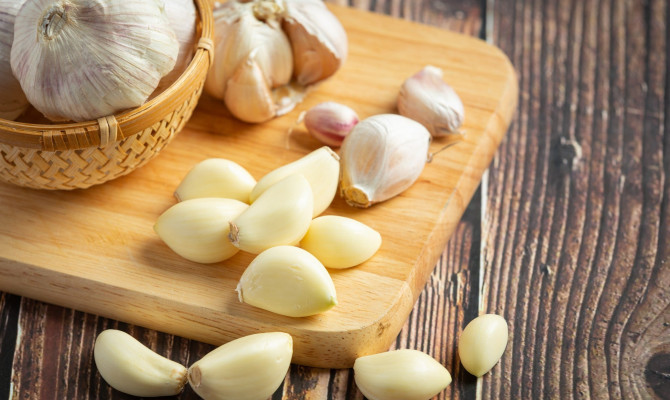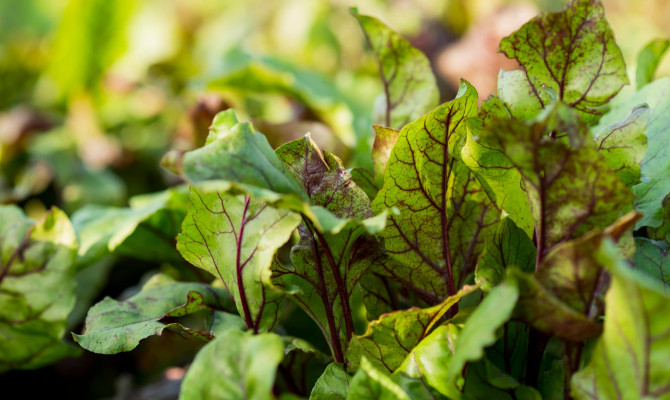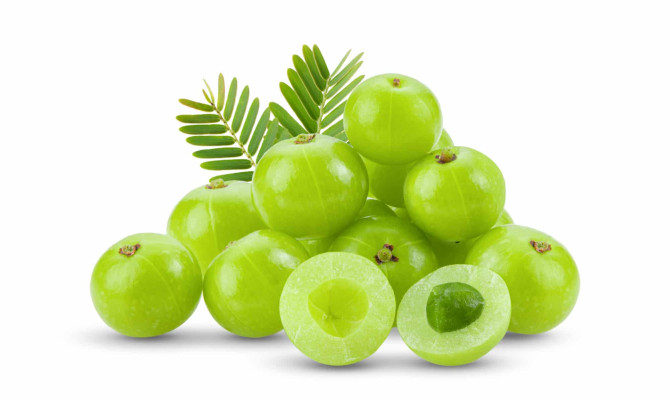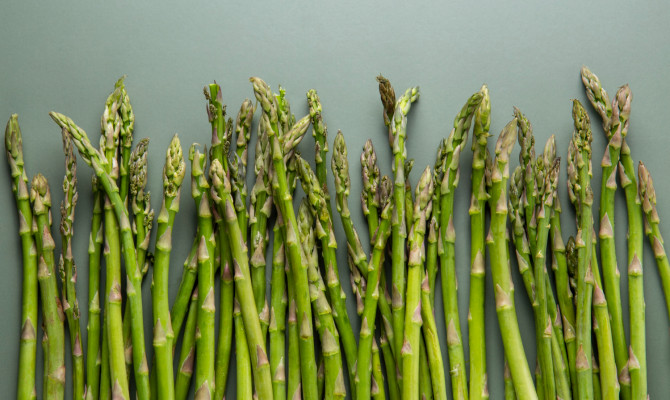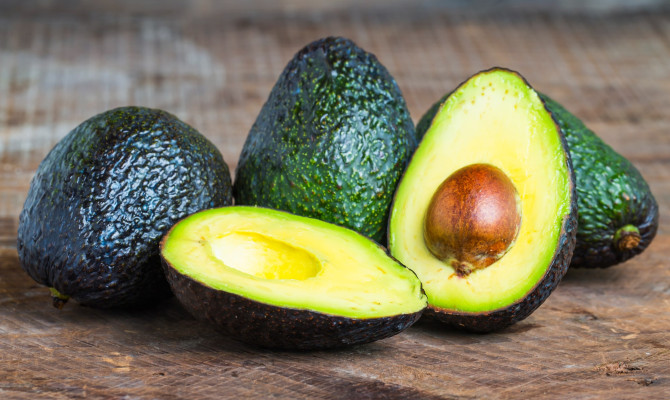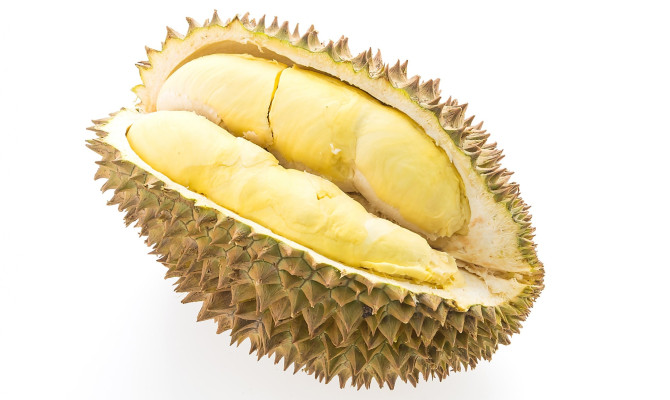Understanding the Science of Keto Diet

- Keto Diet
- 22 Aug 2023
Overview
What is Keto diet?
The keto diet, also known as the ketogenic diet, is a high-fat, low-carb eating plan that has gained popularity because of how well it promotes weight reduction and may have positive health effects. The main objective of the ketogenic diet is to change the body’s metabolism so that fat starts to take the place of carbohydrates as the body’s main source of energy.
This article will give you the information and resources you need to begin on your path to a healthy life, whether you are a season health fanatic or just intrigued to investigate a different approach to nutrition. We will go into the fundamentals of the keto diet, its principles, supported by science, and the incredible benefits it promises to provide in this complete guide.
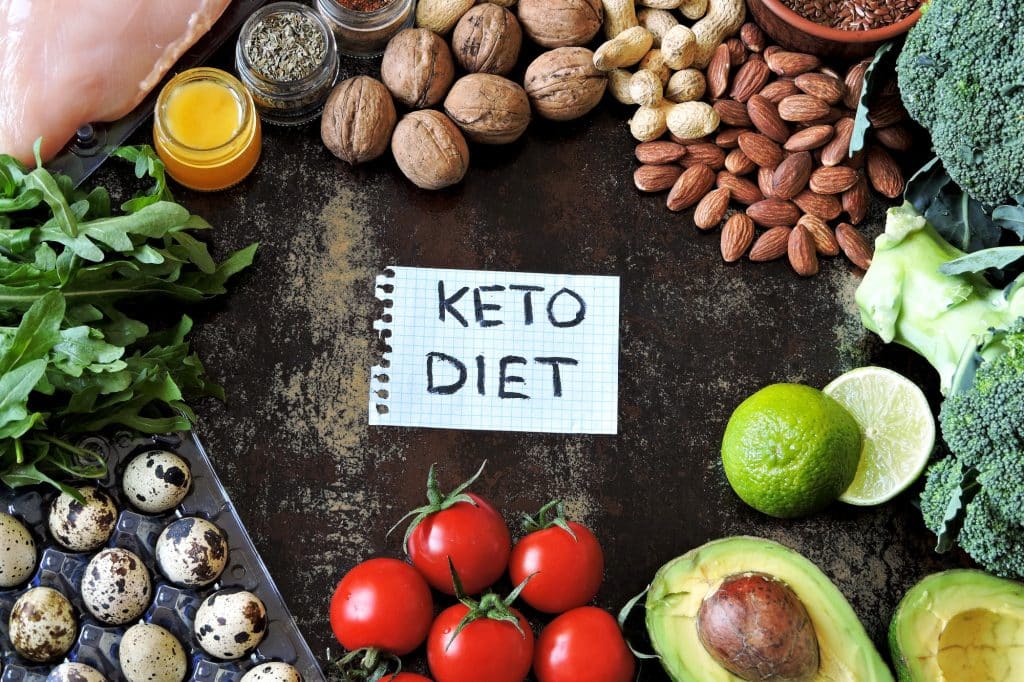
Benefits
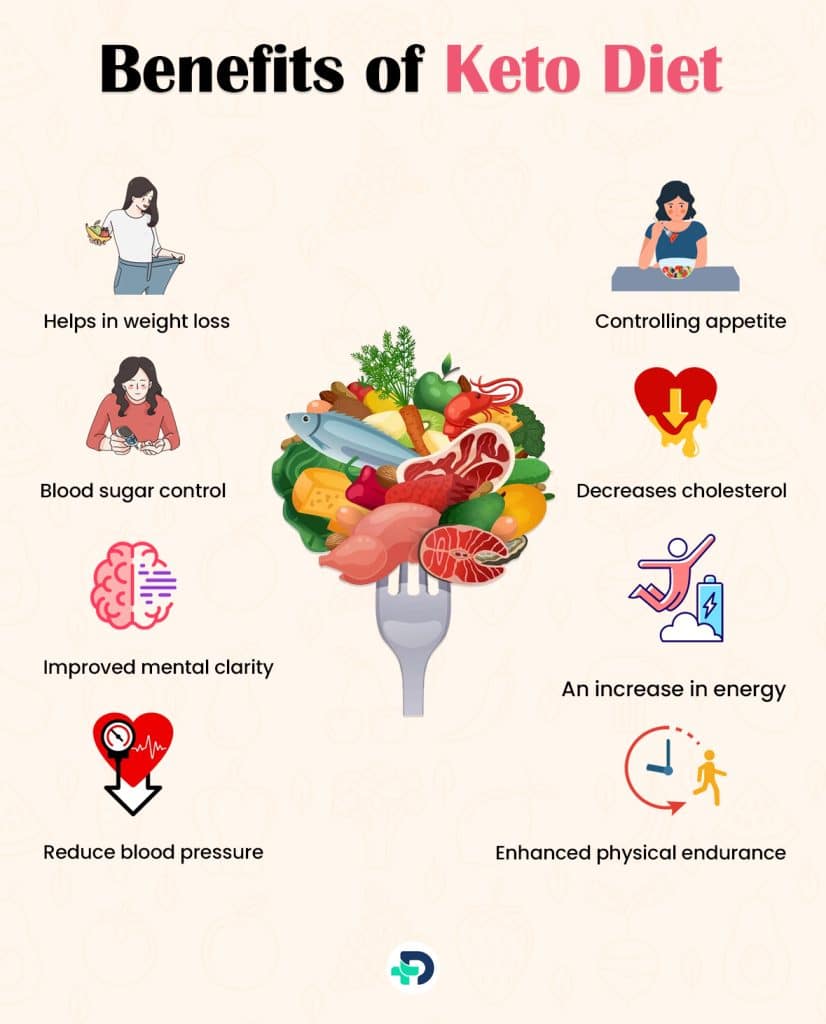
Benefits of Keto diet
As a result of its possible health advantages, it has grown in popularity. Some benefits of adhering to a properly designed ketogenic diet, though individual outcomes may vary.
- Helps in Weight loss
- Controls Appetite
- Helps in Blood sugar regulation
- Improves mental clarity and focus
- Increases energy levels
- Reduces triglycerides and improved cholesterol levels
- Lowers blood pressure
- Enhances physical endurance
- Better control of epilepsy
- Potential anti-inflammatory effects
Helps in weight loss
- The success of the keto diet in facilitating weight reduction by reducing carbohydrate intake and increasing fat consumption is one of the main reasons individuals choose it.
- The body enters a state of ketosis, which increases fat burning and can eventually lead to significant and long-lasting weight loss.
Controlling appetite
- It is frequently linked to improved appetite management since high-fat and protein diets make you feel satisfied for longer, consume fewer calories overall, and prevent frequent cravings or hunger pangs.
Blood sugar control
- Blood sugar levels may be stabilized, which could benefit people with type 2 diabetes or insulin resistance.
Improved mental clarity
- The byproduct of fat metabolism, ketones, can give the brain adequate energy. Following this diet, several people claim to have more mental clarity, focus, and cognitive performance.
An increase in energy
- Many people experience consistent energy levels throughout the day as their bodies get used to using fat as their primary fuel source, which lessens the typical energy collapses linked to high-carbon diets.
Decreases cholesterol
- It can result in lower triglyceride levels and higher levels of “good” cholesterol, which may benefit overall heart health.6Benefits| Researched based study from Nlm.nih.gov
Reduces blood pressure
- Blood pressure has reportedly dropped in some persons, which may help those trying to treat hypertension and related cardiac problems.6Benefits| Researched based study from Nlm.nih.gov
Enhanced physical endurance
- It has demonstrated potential benefits for increasing strength and lowering reliance on carbs during prolonged physical activities for some athletes and fitness lovers.
Better epilepsy management
- It has a lengthy history of success as a treatment to lessen seizures in kids with drug-resistant epilepsy. Adults with seizure disorders might potentially benefit from it in some circumstances.7Benefits| Researched based study from Nlm.nih.gov
Potentially inflammatory-reducing effects
- It could be advantageous for persons with chronic inflammation-related diseases because it may be anti-inflammatory.1Benefits| Researched based study from Nlm.nih.gov ,2Benefits| Researched based study from Nlm.nih.gov
Side effects
Keto diet side effects
The ketogenic diet is beneficial for health, however it can have unfavorable health effects in some people. Some side effects of keto diet are:
- Nutritional deficiencies
- Keto flu
- Constipation and digestive issues
- Increased risk of heart disease
- Kidney issues
- Negative impact on athletic performance
- Bad breath and body odor
- Risk of nutrient-poor food choices
- Sustainability and social challenges
- Lack of long-term research
- Nutritional deficiency
Deficiencies of Nutrients
- Since the keto diet forbids many food groups, vital nutrients like fiber, vitamins, and minerals will be missed. Without careful planning and supplementation, magnesium, potassium, and calcium deficiencies can happen.
Keto flu
- People may have flu-like symptoms during the transition to this diet, including headaches, nausea, and irritability. A short-term illness, the keto flu normally lasts a few days to a week.
Constipation
- For some people, lacking fiber can cause constipation and other digestive issues.
Heart disease risk is more likely
- High consumption of saturated fats from foods like butter, red meat, and full-fat dairy products may raise cholesterol levels and increase the risk of heart disease.
Kidney problems
- Dehydration and increased ketone production could stress the kidneys more, potentially dangerous for persons with kidney problems.
Adversely affects athletic performance
- Due to a lack of carbohydrates, the primary source of rapid energy for hard workouts, certain athletes may need to improve during high-intensity exercises.
Body odor and bad breath
- Some persons who produce ketones may experience body odor and bad breath
Nutritional risk of food choices
- People who adhere to it prioritize high-fat and low-carb items more than the overall quantity of the diet, which could result in harmful eating patterns.
Sustainability and social challenges
- Long-term maintenance may be challenging due to how restrictive it is. Additionally, it could be difficult to socialize or eat out while maintaining the diet. 3Side effects| Researched based study from Nlm.nih.gov
Foods to Eat
What to eat on the Keto diet?
For those looking to start the keto diet, here are a few suggestions.
Meat
- Meats, including beef, hog, lamb, chicken, and other varieties, are excellent sources of protein and good fats.
Fatty fish
- Salmon, tuna, and other fatty fish are good complements to a ketogenic diet because they are rich sources of omega 3 fatty acids.
Eggs
- They may be prepared in various ways and are a flexible and nutrient-dense food that offers protein and good fats.
Butter and cream
- You can consume these high-fat dairy products but should watch your portion quantities.
Cheese
- Since cheese is heavy in fat and low in carbohydrates, it is acceptable for the keto diet in many cases.
Avocados
- Because they are a rich source of fiber and healthy fats, avocados are a well-liked option.
Seeds and nuts
- Rich in lipids and low in carbohydrates, include foods like almonds, walnuts, chia seeds, and flaxseeds.
Healthy oils
- Salads can be prepared and dressed with olive, coconut, avocado, and other healthy oils.
Non-starchy vegetables
- Bell peppers, broccoli, cauliflower, and leafy greens are all acceptable additions.
Berries
- While most fruits have very high sugar content, berries like raspberries, blackberries, and strawberries can be eaten in moderation.
Unsweetened coffee and tea
- You can eat these without adding milk or sugar.
A dark chocolate
- Dark chocolate with a high cocoa content and little added sugar can be savored in moderation.1Foods to eat| Researched based study from Nlm.nih.gov ,4Foods to eat| Researched based study from Nlm.nih.gov
Foods to avoid
Foods to avoid on keto
It’s crucial to avoid or restrict foods high in carbohydrates because the main goal is to achieve and maintain a state of ketosis, which is when your body starts burning fat for fuel instead of carbohydrates. These foods should be avoided:
Grains
- This includes bread, pasta, cereal, rice, corn, oats, and items produced from them.
Sweet foods
- Avoiding candy, cookies, ice cream, and sugar-sweetened beverages is advised.
Starchy vegetables
- Due to their high calorie content, sweet potatoes and carrots should only be eaten seldom.
Beans
- Peas, lentils, and chickpeas are high-carb legumes that should not be consumed on a ketogenic diet.
Fruits
- They are generally not recommended because they are high in sugar and calories.
Sugary condiments and sauces
- Avoid high-sugar condiments such as sweet ketchup, BBQ sauce, honey mustard, and other sauces.
Diet or low-fat foods
- These are unsuitable and frequently contain extra sugar.
Processed foods
- It is better to stay away from processed foods because many of them have hidden sugars and carbohydrates.
Alcoholic drinks
- It may hinder ketosis if you consume low-carb options like dry wines or spirits. Alcoholic beverages can be heavy in carbohydrates.
High carbs snacks
- Do not consume chips, crackers, or other snacks.
Yogurt that is low in fat and sweet
- Greek yogurt that is full-fat and plain is preferable to fruit juices and other sweetened beverages.
- They should be avoided because they contain a lot of sugar.
Condiments
- They are high in carbs including ketchup, sweet chili sauce, and other high-carb spices be caused.5Foods to avoid| Researched based study from Nlm.nih.gov
Any feedback on this article?
 This Articles content was accurate
This Articles content was accurate Very Informative Article
Very Informative Article I have a question or a comment
I have a question or a comment
 This article contains inaccurate content
This article contains inaccurate content This article was not helpful
This article was not helpful I have a question or a comment
I have a question or a comment
We appreciate your helpful feedback!
Checkout our social pages
References
-
National Library of Medicine
Ketogenic Diet | Overview | Benefits
-
National Library of Medicine
Low Carbohydrate Diet | Benefits
-
National Library of Medicine
Advantages and Disadvantages of the Ketogenic Diet: A Review Article | Benefits | Side effects
-
National Library of Medicine
A Review of Ketogenic Diet and Lifestyle | Foods to eat
-
National Library of Medicine
Adherence to Ketogenic and Mediterranean Study Diets in a Crossover Trial: The Keto–Med Randomized Trial | Foods to avoid
-
National Library of Medicine
A Ketogenic Low-Carbohydrate High-Fat Diet Increases LDL Cholesterol in Healthy, Young, Normal-Weight Women: A Randomized Controlled Feeding Trial | Benefits
-
National Library of Medicine
Ketogenic Diet and Epilepsy | Benefits












